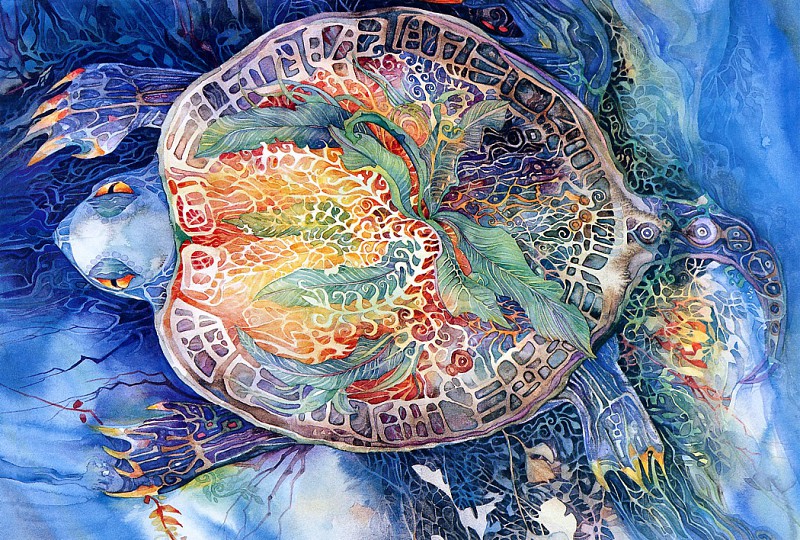We know that music captures the rhythm of the cultural zeitgeist, but with a world so complex there can be more than one beat. Two popular musicians, John Mayer (born 1977) and Matisyahu (born Matthew Miller, 1979) – judging not least by number of records sold – could each be a spokesperson for his generation. However, the philosophies represented in their songs represent two very discordant rhythms. Although both appeal to the same demographic, the messages Mayer and Matisyahu play to their listeners and the gestalts reflected in the lyrics are almost direct opposites.
In Mayer’s popular Waiting on the World to Change, he asserts in verse two:
We see everything that’s going wrong
With the world and those who lead it
We just feel like we don’t have the means
To rise above and beat it
In contrast, Matisyahu’s Youth begins
Young man, control in your hand
Slam your fist on the table and make your demand
Take a stand
The essential difference in these two passages is the sense of agency. Whereas Mayer is waiting passively for the world to change, Matisyahu is enjoining his listeners to take an active and assertive stance. In Mayer’s universe, the young people are waiting apathetically – almost meekly –abdicating responsibility, while Matisyahu’s youth are outspoken agents for changing the system.
The songs continue:
Mayer:
It’s hard to beat the system
When we’re standing at a distance
So we keep waiting
Waiting on the world to change …
One day our generation
Is gonna rule the population
So we keep on waiting
Waiting on the world to change
Matisyahu:
storm the halls of vanity
focus your energy
into a laser beam
streaming shattered light
unites to pierce
between the seams
Despite the recognition on the part of both artists that their generation is soon to rule the world, Mayer’s lyrics embody ennui while Matisyahu’s bespeak energy, activity, vitality. Matisyahu followers will seize the future while Mayer’s will passively inherit the earth. Mayer’s world exudes torpor and world weariness. Matisyahu’s on the other hand evinces power and mastery. The question that naturally emerges then is why? Why should two talented artists so similar in age and both idolized by youth everywhere (perhaps even by the same audiences) have such incompatible messages?
Mayer:
Now if we had the power
To bring our neighbors home from war
They would have never missed a Christmas
No more ribbons on their door
And when you trust your television
What you get is what you got
Cause when they own the information, oh
They can bend it all they want
Matisyahu:
fan a fire for the flame of the youth
got the freedom to choose
you better make the right move
young man, the power’s in your hand
One possible answer to the question of conflicting messages is that Mayer and Matisyahu are rooted in two different traditions which impart disparate messages. Mayer’s worldview derives from the Christian understanding that the meek shall inherit the earth, while Matisyahu’s viewpoint stems from the Jewish value taught by Rabbi Tarfon: “It is not your responsibility to finish the work [of perfecting the world], but you are not free to desist from it either” (Pirkei Avot 2:16). What better expression of “tikkun olam” than Matisyahu’s injunction to the youth to take a stand, to assertively, even aggressively, demand change.
It is evident that Matisyahu is a Jewish singer but surprisingly, Mayer also identifies as a Jew. Matisyahu is an American-Hasidic Jew whose music is rooted in reggae, hip hop and Jewish hazzan tradition; Mayer is a signer-songwriter playing acoustic rock dipped in blues. Mayer, it turns out, is Jewish on his father’s side and has said in an interview that he “relate[es] to Judaism” though elsewhere he has said that he does not practice any religion. Whatever his background, an examination of his philosophy reveals that it is steeped in the American Christian majority culture.
Both Mayer and Matisyahu’s videos (available on youtube http://www.youtube.com/watch?v=oBIxScJ5rlY&ob=av2e and http://www.youtube.com/watch?v=k9Kf4esMvdE&ob=av2e) show the singers walking the streets of New York City, hub of the world, symbol of perpetual youth. New York, though, is also the ultimate meeting place of multiple cultures, many creeds all living together in relative harmony and as such is a true hope for the youth and the future of our planet.
As a final comment, when listening a few months ago to the radio and hearing of the turmoil and uprising of the people in Egypt before I switched stations, my two sons – ages 7 and 4 at the time – asked me what was happening in Egypt. I explained as simply as I could that the people were angry at their President and they were demonstrating because they wanted to change their country. So, my little one pipes up, “oh, that’s like what the song says: “slam your fist on the table and make your demands.” Tikkun Olam starts young.
